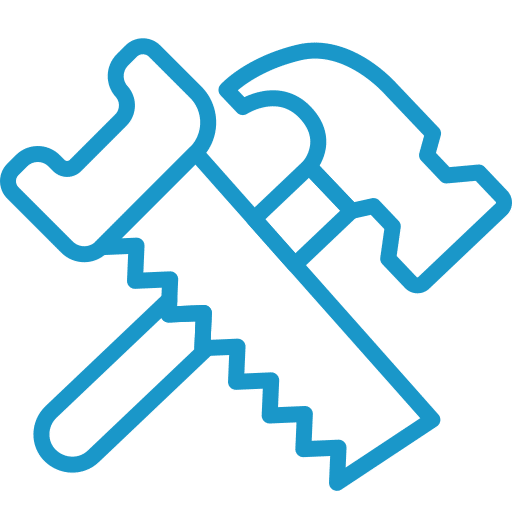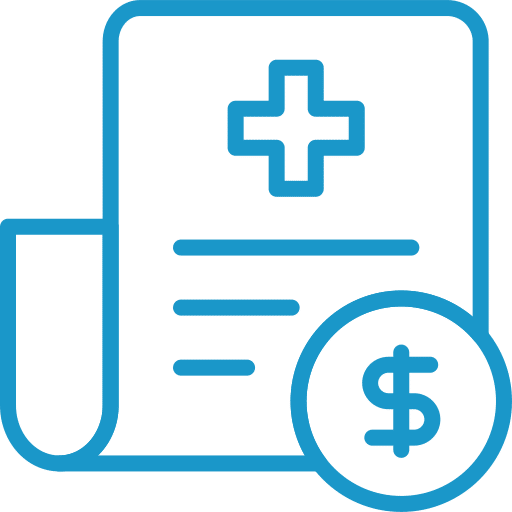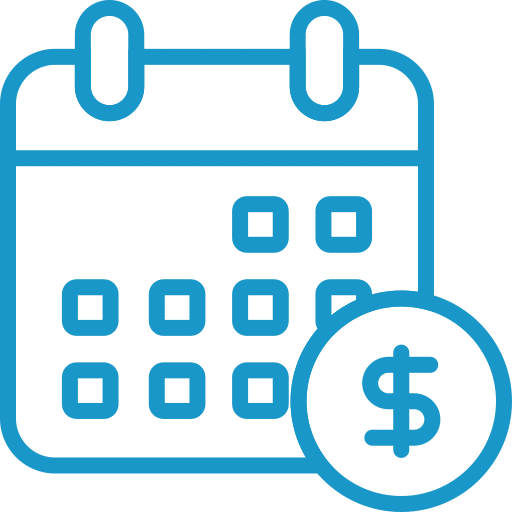Breast Reduction Financing
Get pre-qualified for a personal loan in just minutes. Checking rates won’t affect your credit score







How to Get a Breast Reduction Loan
Many women find that breast reduction surgery gives them a new lease on life - reducing back pain, improving the way their clothes fit, and improving their confidence in their bodies. Of course, breast reduction surgery is something that should never be done on a budget, and so you may need breast reduction financing to afford the results you desire.
Applying for breast reduction financing is fast and easy:
Compare personal loan rates
Compare personal loan rates in April, 2025
What is breast reduction financing?
Breast reduction financing refers to the financial options available to individuals who wish to undergo breast reduction surgery but may need assistance in covering the costs. Breast reduction is a surgical procedure designed to reduce the size and reshape the breasts, alleviating physical discomfort and improving the overall appearance.
Breast reduction financing allows individuals to obtain the necessary funds upfront to pay for the surgery and associated expenses. It can help make breast reduction surgery more affordable by spreading out the cost over time and allowing patients to make manageable monthly payments.
How does breast reduction financing work?
There are a few different types of financing you can use for breast reduction financing (which we’ll cover shortly) but most people choose to use a personal loan. This is where you borrow a lump sum amount and pay it back monthly, plus interest, over a fixed period. This term is usually 3-5 years.
How big do your breasts need to be to get a reduction?
The decision to undergo a breast reduction surgery is not solely based on the size of the breasts but is determined by a combination of factors, including physical discomfort, functional limitations, and personal preference. Breast reduction surgery, also known as reduction mammoplasty, is primarily performed to alleviate symptoms associated with overly large breasts.
While there is no specific cup size requirement to qualify for a breast reduction, candidates typically experience symptoms such as:
- Physical discomfort: Chronic neck, shoulder, or back pain caused by the weight and strain of large breasts.
- Posture issues: Difficulty maintaining proper posture due to the weight and size of the breasts.
- Skin irritation: Rashes, chafing, or skin infections beneath the breast crease.
- Limitations in physical activities: Difficulty participating in sports or physical activities due to the size and weight of the breasts.
- Emotional well-being: Negative body image, self-consciousness, or psychological distress associated with the size of the breasts.
How much does breast reduction surgery cost?
The cost of breast reduction surgery can vary depending on several factors, including the geographic location, the experience and expertise of the surgeon, the complexity of the procedure, the type of anesthesia used, and the specific healthcare facility where the surgery is performed. Additionally, the cost may also include pre-operative tests, post-operative care, and follow-up appointments.
On average, the cost of breast reduction surgery in the United States can range from $5,000 to $10,000 or more. However, it's important to note that this is a rough estimate, and the actual cost can be higher or lower depending on the factors mentioned above.
Common Reasons Why People Choose Breast Reduction Surgery
Some of the reasons why people choose to invest in breast reduction surgery are:
- To reduce back, shoulder, and neck pain caused by heavy breasts
- To eliminate sweat rash and other skin irritation problems under the breasts
- To reduce nerve pain
- To be able to do more physical activity without discomfort
- To give their breasts a better appearance
- To have better self-confidence
- To purchase clothes that fit their body, not just their breasts
- To have an easier time finding clothes and bras that fit
What are the costs associated with breast reduction surgery?
The costs associated with breast reduction surgery can include:
- Surgeon's fees: This covers the expertise, skill, and time of the plastic surgeon performing the procedure.
- Anesthesia fees: The cost of anesthesia administered during the surgery to ensure your comfort and safety.
- Facility fees: Charges for the use of the surgical facility, including operating room, equipment, and nursing staff.
- Pre-operative tests: Costs for any necessary medical tests or examinations conducted before the surgery to evaluate your health and suitability for the procedure.
- Post-operative care: Expenses related to follow-up appointments, dressings, and medications during the recovery period.
- Surgical garments: The cost of special supportive garments or bras recommended after the surgery to aid in the healing process.
- Prescription medications: Any prescribed medications to manage pain, prevent infection, or aid in healing.
- Laboratory fees: Charges for laboratory tests or pathology examinations, if required.
- Additional procedures: If additional procedures, such as liposuction or nipple/areola reduction, are performed alongside the breast reduction surgery, their costs will be separate.
Will my health insurance cover breast reduction surgery?
In most cases, no, but there are some circumstances in which they will cover some or all of the cost of your surgery if it is deemed necessary by a medical doctor. This will be the case if your breasts are causing you pain, causing a loss of function, or frequent infection. Note that you (usually) need to have a BMI of less than 35 to be approved for a breast reduction paid for in part or full by your health insurance. If your health insurance will cover the cost, you’ll need to use an approved surgeon or be willing to pay additional costs.
Compare Offers

Ready to find the best loan for cosmetics & plastic surgery procedures? Get started!
Need help finding the right loan?
No worries, we've got you covered! Compare personalized loan options in just minutes.
How Pasha Funding Works

How can I finance a breast reduction procedure?
Here are the most popular options for financing a breast reduction:
- Personal Loans: Personal loans are the most popular choice and allow you to borrow a flexible amount and control what it pays for since the money is deposited in your account. How much you can borrow depends on your creditworthiness.
- 0% APR Credit Cards: If you have a high income or only need to borrow a small amount, a 0% APR credit card may be a good choice if you have a high credit score. A low-interest credit card can be another good option for those with a high score.
- HELOC: A Home Equity Line of Credit allows you to borrow as necessary against the value of your home, up to a given credit limit. This type of borrowing is flexible and often has a relatively low-interest rate, but does put your home at risk if the worst was to happen.
- 401(k) Loan: Some 401(k) plans allow you to take out a loan for a term of up to 5 years. Since you’re borrowing from yourself, there is no credit check and no interest to pay.
- In-House Financing: Many surgeons offer in-house financing with a partner lender. This is usually a personal loan, so make sure you compare it with external funding options to ensure you’re getting a good deal.
Of course, paying for your surgery from your savings and investments (if they can be liquidated without penalty) will usually be the most affordable option.
Pros & Cons of Breast Reduction Financing
PROS
- Get the surgery you want now (rather than later)
- Keep your savings
- Spread the cost over a much longer-term
- Many of the options have low interest rates, especially if you have a high credit score
CONS
- If you stretch yourself financially to afford the surgery, you may find you have to put other big life decisions on hold until you pay it off
- If you don’t have a good credit score, you’ll struggle to find affordable financing
What credit score do I need to qualify for breast reduction financing?
The credit score required to qualify for breast reduction financing can vary depending on the specific lender or financing program you choose. While there is no specific credit score threshold solely for breast reduction financing, having a good credit score generally improves your chances of approval and may lead to more favorable financing terms.
A good credit score is typically considered to be around 670 or higher. However, lenders may have different criteria and evaluate other factors in addition to your credit score when determining eligibility for breast reduction financing. These factors can include your income, debt-to-income ratio, employment history, and overall creditworthiness.
Can I get breast reduction financing with bad credit?
Obtaining breast reduction financing with bad credit may be more challenging, but it is not entirely impossible. While having bad credit can limit your options and potentially result in higher interest rates or less favorable terms, there are still potential avenues to explore. Here are some options to consider:
- Medical financing companies: Some specialized medical financing companies cater to individuals with less-than-perfect credit. They may have programs specifically designed for cosmetic procedures like breast reduction. These companies may be more flexible in their credit requirements compared to traditional lenders.
- Secured loans: If you have valuable assets such as a vehicle or property, you may be able to secure a loan using those assets as collateral. This can provide assurance to the lender and increase your chances of approval, even with bad credit.
- Co-signer: Having a co-signer with good credit can strengthen your application and increase the likelihood of getting approved for breast reduction financing. The co-signer agrees to be responsible for the loan if you fail to make payments, which provides added security to the lender.
- In-house financing: Some plastic surgery clinics or healthcare providers offer in-house financing options for their patients. These arrangements may be more lenient with credit requirements and can provide an opportunity to finance your breast reduction surgery directly through the clinic.
How to Qualify for Breast Reduction Financing
To qualify for affordable breast implant revision financing, you’ll need (in general):
- A credit score over 660
- A debt-to-income ratio of 30% or less
- Annual income over $20,000
Apply for breast reduction financing
To apply for breast reduction financing, you can follow these general steps:
- Research financing options: Explore different lenders and financing programs that specifically cater to medical procedures or cosmetic surgeries like breast reduction. Look for lenders who offer flexible terms, competitive interest rates, and are willing to consider applicants with varying credit histories.
- Gather necessary documents: Prepare the required documents typically requested for loan applications. This may include identification, proof of income, employment verification, bank statements, and any relevant medical information related to your breast reduction surgery. Ensure that you have all the necessary paperwork ready before applying.
- Compare and apply: Review the financing options available to you and compare the terms, interest rates, repayment periods, and any associated fees or penalties. Once you've identified a suitable lender, complete the application form with accurate information and submit it along with the required documents.
- Await approval and review the offer: The lender will assess your application, including your credit history, income, and supporting documentation. If approved, carefully review the loan offer, including the interest rate, repayment terms, and any associated fees. Make sure you understand all the terms and conditions before accepting the offer.
Cosmetic Financing Options
Breast
Body Lift
Male
Fat Reduction
Face & Neck
Personal Loans for Every Occasion
Find Your Best Rate
Compare Best Personal Loans
Personal Loan Payoff Calculator
Personal Loan Lender Reviews
Personal Loans By Credit
Personal Loans for Fair Credit
Personal Loans for Good Credit
Personal Loans for Excellent Credit
Personal Loan Types
Auto Repair Loans
Credit Card Consolidation Loans
Fast Personal Loans
Home Improvement Loans
Horse Barn Financing
Wedding Loans
Family Planning Loans
Funeral Financing
Land Purchase Financing
Manufactured Home Financing
Medical Loans
Cosmetic & Plastic Surgery Financing
Owner Builder Construction Loans
Personal Loans for House Down Payment
Personal Loans for Self Employed
Personal Loans for Furniture Expenses
Student Loans
Debt Consolidation Loans
Vacation & Travel Loans
Emergency Personal Loans
Personal Loans with Co-signers
Home Improvement Financing
Appliance Financing
Bathroom Remodel Financing
Basement Remodel Financing
Boat Dock Loans
Deck Financing
Driveway Paving Financing
Fence Financing
Flooring Financing
Furnace Financing
Garage Financing
Home Addition Financing
Hot Tub Financing
HVAC Financing
Home Insulation Financing
Interior & Exterior Painting Financing
Kitchen Remodel Financing
Kitchen Cabinet Financing
Pole Barn Financing
Roof Financing
Solar Panel Financing
Swimming Pool Financing
Sunroom Addition Loans
Window Replacement Financing
Loan rate & terms disclosure: Prequalified rates are based on the information you provide and a soft credit inquiry. Receiving prequalified rates does not guarantee that the Lender will extend you an offer of credit. You are not yet approved for a loan or a specific rate. All credit decisions, including loan approval, if any, are determined by Lenders, in their sole discretion. Rates and terms are subject to change without notice. Rates from Lenders may differ from prequalified rates due to factors which may include, but are not limited to: (i) changes in your personal credit circumstances; (ii) additional information in your hard credit pull and/or additional information you provide (or are unable to provide) to the Lender during the underwriting process; and/or (iii) changes in APRs (e.g., an increase in the rate index between the time of prequalification and the time of application or loan closing. (Or, if the loan option is a variable rate loan, then the interest rate index used to set the APR is subject to increases or decreases at any time). Lenders reserve the right to change or withdraw the prequalified rates at any time.
Requesting prequalified rates on Credible is free and doesn't affect your credit score. However, applying for or closing a loan will involve a hard credit pull that impacts your credit score and closing a loan will result in costs to you.









